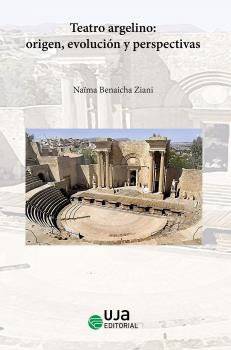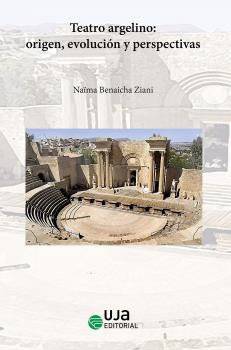
Je cadeautjes zeker op tijd in huis hebben voor de feestdagen? Kom langs in onze winkels en vind het perfecte geschenk!
- Afhalen na 1 uur in een winkel met voorraad
- Gratis thuislevering in België vanaf € 30
- Ruim aanbod met 7 miljoen producten
Je cadeautjes zeker op tijd in huis hebben voor de feestdagen? Kom langs in onze winkels en vind het perfecte geschenk!
- Afhalen na 1 uur in een winkel met voorraad
- Gratis thuislevering in België vanaf € 30
- Ruim aanbod met 7 miljoen producten
Zoeken
€ 21,45
+ 42 punten
Omschrijving
El teatro argelino ha estado siempre muy ligado a la sociedad y a los acontecimientos vividos por esta. Aparece a finales del siglo XIX como un injerto en el paisaje cultural argelino. Se afirmará, muy rápidamente, en su práctica artística y, más tarde, encontrará su legitimidad social e impondrá su curso histórico como arte mayor. Contribuirá, de manera memorial, a ilustrar recorridos enteros de la Historia. En este nuevo espacio de expresión las ideologías nacionales y regionales dominantes, como el panarabismo, el nacionalismo, el socialismo, la pertenencia al islam y la reivindicación del bereberismo, se imponen, y los intentos de formular una cierta originalidad artística y cultural se vuelven cada vez más necesarios. Uno de los mayores ejes de creatividad del teatro argelino es el compromiso con las causas justas, que lo marca desde su nacimiento. Su lucha es la de la libertad contra toda forma de injusticia. Desde el punto de vista lingüístico, prueba con el uso del árabe hablado al alcance de todas las capas sociales. Se trata de la creación de un espacio cultural privilegiado y propicio para la interacción y la comunicación directa con el pueblo. ______________ _Algerian theatre has always been closely linked to society and the events it has experienced. It appeared at the end of the 19th century as a graft in the Algerian cultural landscape. It quickly asserted itself in its artistic practice, and later found its social legitimacy and imposed its historical course as a major art form. It would contribute, in a memorial way, to illustrating entire trajectories of History. In this new space of expression, the dominant national and regional ideologies, such as pan-Arabism, nationalism, socialism, belonging to Islam and the vindication of Berberism, were imposed, and attempts to formulate a certain artistic and cultural originality became increasingly necessary. One of the major creative axes of Algerian theatre is its commitment to just causes, which has marked it since its birth. Its struggle is for freedom against all forms of injustice. From the linguistic point of view, it tries out the use of spoken Arabic within the reach of all social strata. It is the creation of a privileged cultural space conducive to interaction and direct communication with the people.
Specificaties
Betrokkenen
- Auteur(s):
- Uitgeverij:
Inhoud
- Aantal bladzijden:
- 216
- Taal:
- Spaans
Eigenschappen
- Productcode (EAN):
- 9788491594666
- Verschijningsdatum:
- 15/11/2022
- Uitvoering:
- Paperback
- Afmetingen:
- 150 mm x 230 mm
- Gewicht:
- 452 g

Alleen bij Standaard Boekhandel
+ 42 punten op je klantenkaart van Standaard Boekhandel
Beoordelingen
We publiceren alleen reviews die voldoen aan de voorwaarden voor reviews. Bekijk onze voorwaarden voor reviews.









